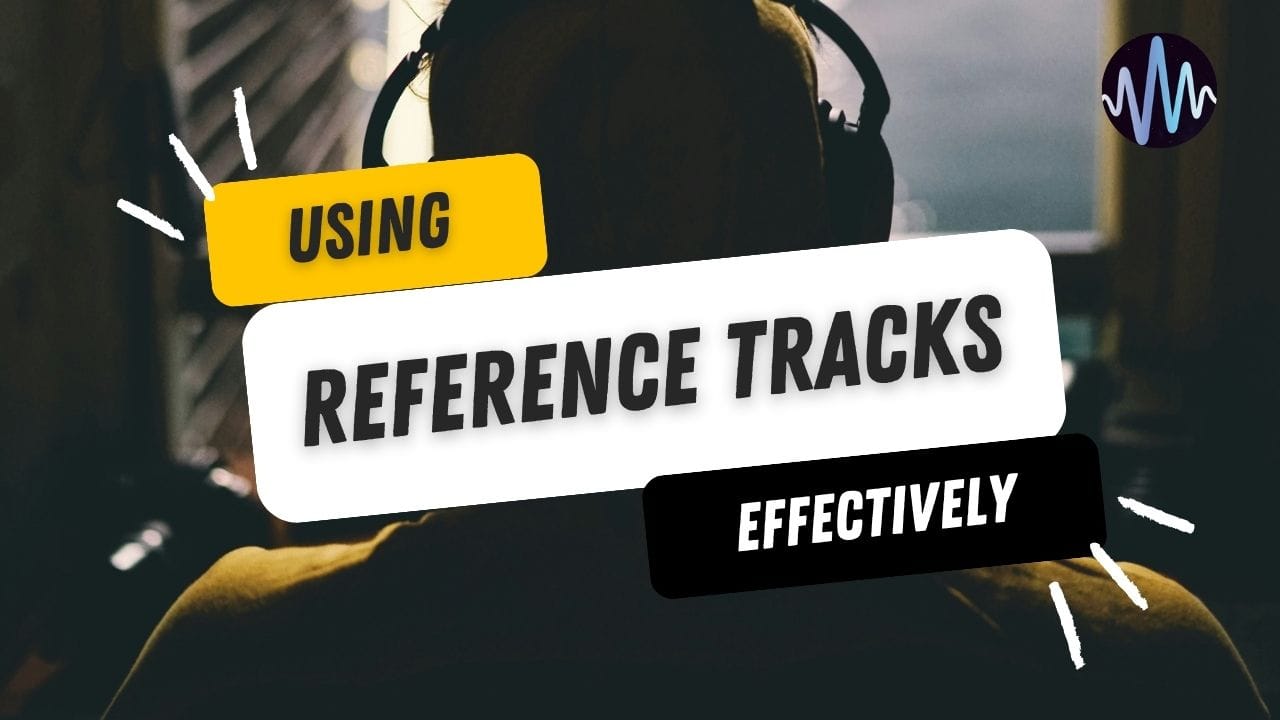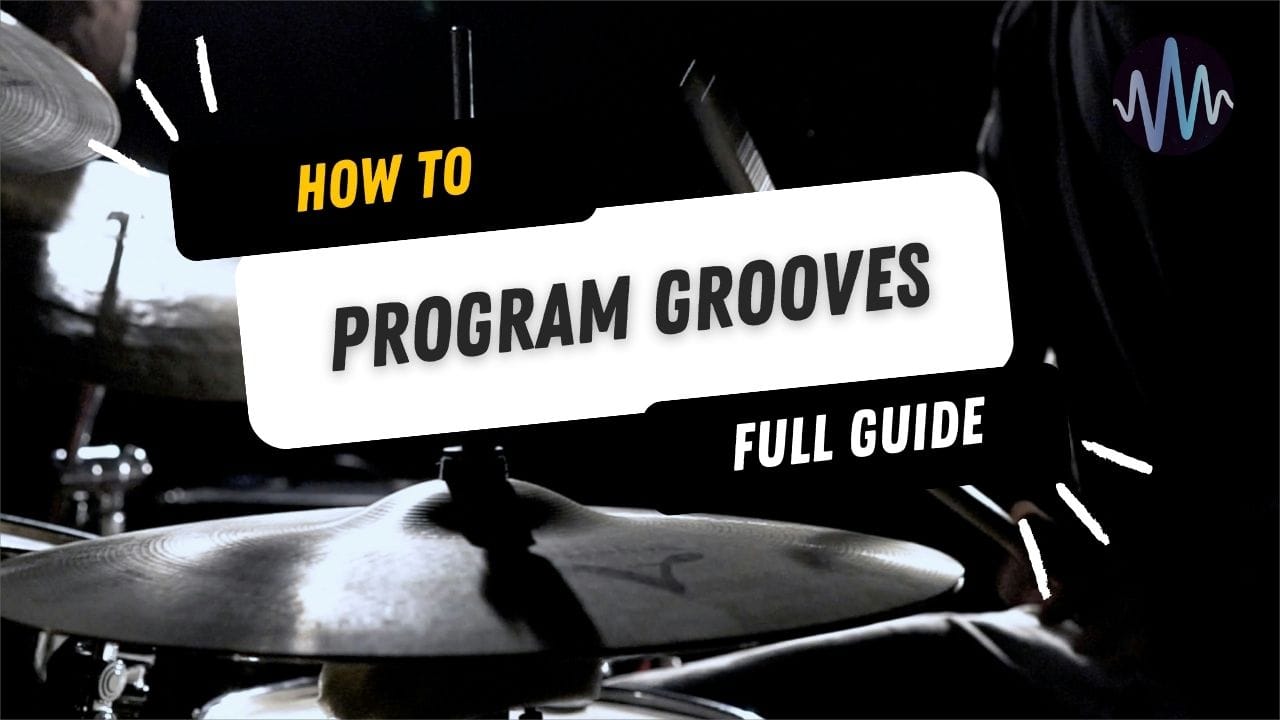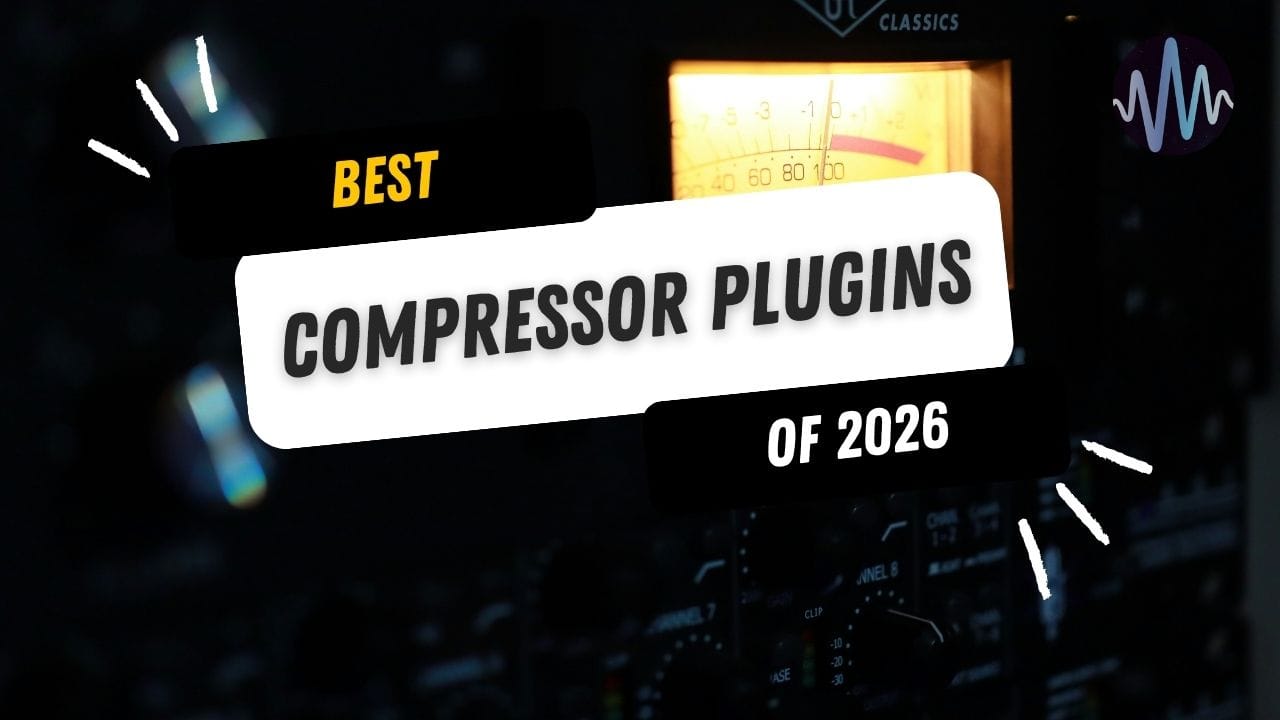
It's late, and you've been working on this mix for hours.
The kick and bass seem to finally sit together. The vocal has decent presence. Everything feels balanced.
Then you load up a reference track to compare it to a pro track you love.
You A/B between your mix and theirs a few times, and suddenly, everything you just did sounds wrong. Your bass feels weak. Your highs seem dull.
The whole mix feels small and amateurish next to this polished, professional track…Strange right?
So you start tweaking, but now it sounds worse than before, and you've lost the plot entirely. What were you even going for in the first place?
This is the reference track trap, and we’ve all been there.
- What Are Reference Tracks?
- The Two Core Problems With Reference Tracks
- The Practical Problem of Reference Tracks
- The Psychological Problem of Reference Tracks
- When References Work
- The Multi-System Cross-Check Problem
- Closing Thoughts
What Are Reference Tracks?
A reference track is straightforward enough in concept. It's a professionally mixed and mastered song that producers use as a benchmark while working on their own music.
If you’re creating any sort of music, you’re probably looking for your work to match your favorite tracks – especially in key areas such as bass impact, presence, loudness, and width.
The idea is that by comparing a mix to something that's already proven to work in the real world, it becomes easier to make better decisions about balance, frequency response, dynamics, and overall vibe.
Some producers will also pull up spectrum analyzers to compare frequency distribution, check stereo width, or measure differences in dynamic range across the frequency spectrum.
The logic seems bulletproof, and there are legitimate uses. But there are also some practical and psychological dangers to leaning on reference tracks.
The Two Core Problems With Reference Tracks
The reference track trap has two main failure points that interact and compound each other:
- The practical side: Bedroom monitoring environments bear no resemblance to the treated studios with high-end monitors, where references were mixed.
- The psychological side: Constant comparison gradually erodes trust and often distorts your critical listening negatively.
Each of these alone can derail a mixing session. Together, they create a feedback loop where every decision seems to make things worse, and confidence in one's own ears evaporates.
The Practical Problem of Reference Tracks
That reference track was created in a completely different environment than yours – different room, different monitors, different acoustics, and so on.
Every monitoring setup presents sound in its own way. The same track sounds different on various monitor brands, in rooms with different dimensions and treatment, through different signal chains, etc.
Even two high-quality studios will make the same mix sound noticeably different to trained ears.
We wrote about this recently – how different studios had a huge impact on certain genres and recording techniques.
When you try to match a reference, you're not hearing what the original mixer heard. You're hearing that mix filtered through your specific setup, then trying to make your mix sound like that filtered version.
Get it sounding "right" on your monitors, and it might fall apart everywhere else.
The Context Gap
Additionally, you might be comparing two tracks at completely different stages of completion.
That reference has been through revisions, feedback sessions, and likely multiple mixes. Someone made decisions, lived with them, came back with fresh ears, and refined them further. The version you're hearing is the survivor of that process.
If you're still mixing, you obviously can’t fairly compare it to a master – that will only lead to frustration and potentially overcooking your mix trying to match something that's been through an entirely different process.
The Psychological Problem of Reference Tracks
Before you loaded that reference, you might have thought your mix sounded pretty good, only to have that feeling crushed under the weight of expectation that it might align with a professional track.
That’s because reference tracks have a habit of completely destabilizing your judgment. What happens when confidence collapses:
- Good instincts are second-guessed and reversed
- You start making changes for the sake of it and forget where you were
- Creative decisions become timid and safe
- The mixing process turns into damage control rather than enhancement
The loss of confidence often leads to impaired decisions. You're no longer mixing what you hear, but what you think you should be hearing based on someone else's work.
Creative Homogenization
Overusing references can strip away what makes your music interesting. While some genres, particularly electronic music, exhibit a degree of homogeneity, this isn’t a hard and fast rule.
Outside of electronic, would you compare, say, a The Smashing Pumpkins track to Soundgarden just because they're both alternative rock from the grunge era?
Both released in 1996, 1979 and Pretty Noose sound quite similar on first inspection
But if you were to A/B these songs and listen in-depth you'd find some major differences. Really, though, they both just sound great.
Or self-titled Blink-182 to 90s NOFX, just because they’re both pop punk?
When you're constantly A/B-ing against the same few tracks, you start unconsciously mimicking their choices, but that may not work for your track.
Some of the most compelling productions don't sound quite like anything else and break conventions in ways that feel right for the music.
Think about producers with distinctive sounds – Jon Hopkins, Four Tet, Burial, Flying Lotus. Their mixes don't sound like anyone else's, and that's part of what makes them compelling.
As a side note on the above, sometimes it’s best not to worry at all. There’s that saying about what artists do with their art when they finish it, “I stare at it until I hate it” – that state of mind applies to music, too.
If you have gazillions of unfinished tracks on your hard drive, it’s time to get them “good enough” and not “perfect” and start shipping them out! Easier said than done, I know.
When References Work
It's worth acknowledging where references have legitimate value to avoid totally demonizing them, such as making comparisons to other productions as a learning and critical listening technique.
Room Calibration
If every reference track sounds bass-heavy in a particular room, that reveals something about the room or the speakers. Same if the bass seems to be sucked out totally – this might help you compensate by not cranking your bass up to a silly level to hear it.
Obviously such issues are best fixed properly with room treatment, etc, but sometimes that isn’t possible, and listening to other music in your room can help you build a psychological picture of the following:
- How much bass needs to be in a mix for it to sound balanced elsewhere.
- Which frequency ranges their room exaggerates or diminishes.
- How their monitors color the sound compared to the real world.
- What compensation they need to make mentally while mixing.
Learning Specific Techniques
Sometimes the goal is to understand a specific technique or sound. Focused, analytical listening to figure out a specific strategy. This might involve:
- Studying how a specific engineer balances drums against bass.
- Understanding the reverb-to-dry ratio on a particular style of vocal.
- Learning how much stereo width is typical in a genre.
- Figuring out compression settings that create a certain vibe.
This is key: you’re listening more to mechanics and movement than levels or frequencies, so the more the techniques, the less the mix and mastering.
The Multi-System Cross-Check Problem
Finally, most of this advice applies to moving your tracks between systems. This is extremely common advice, and it obviously has its merits, but you do need to exercise caution.
Every playback system has its own character. Cars emphasize bass. Earbuds might make the low-end disappear or highlight harshness. Laptop speakers can't really reproduce bass at all.
If you try to make a mix sound perfect on every single system, you'll drive yourself mad, as each adjustment to fix one system throws off how it sounds on another. It’s still somewhat unavoidable to do this, so long as you’re aware of the psychological challenge it involves.
The alternative is that all too familiar analysis paralysis, where you're constantly second-guessing rather than finishing music.
Closing Thoughts
Reference tracks seem like a shortcut, but they present practical and psychological challenges.
The bottom line is that there are too many complex interactions involved in most tracks to really ‘match’ a pro song on your own setup.
You can get closest in simple electronic music (think trap or house with a few instruments), but the more complex and detailed your production gets, the harder it will become.
The real skill is finishing tracks instead of endlessly tweaking them toward some moving target.
So by all means, use references strategically. Learn from them. But then close them, trust the process, and finish the work.
Because the best mix is the one that's done and released, not the one that perfectly matches some track from a completely different production context!
Looking for samples that already sound great without endless referencing? Sample Focus has thousands of professionally processed loops, drums, and one-shots ready to drop into your mix. Browse the categories here.





Comments